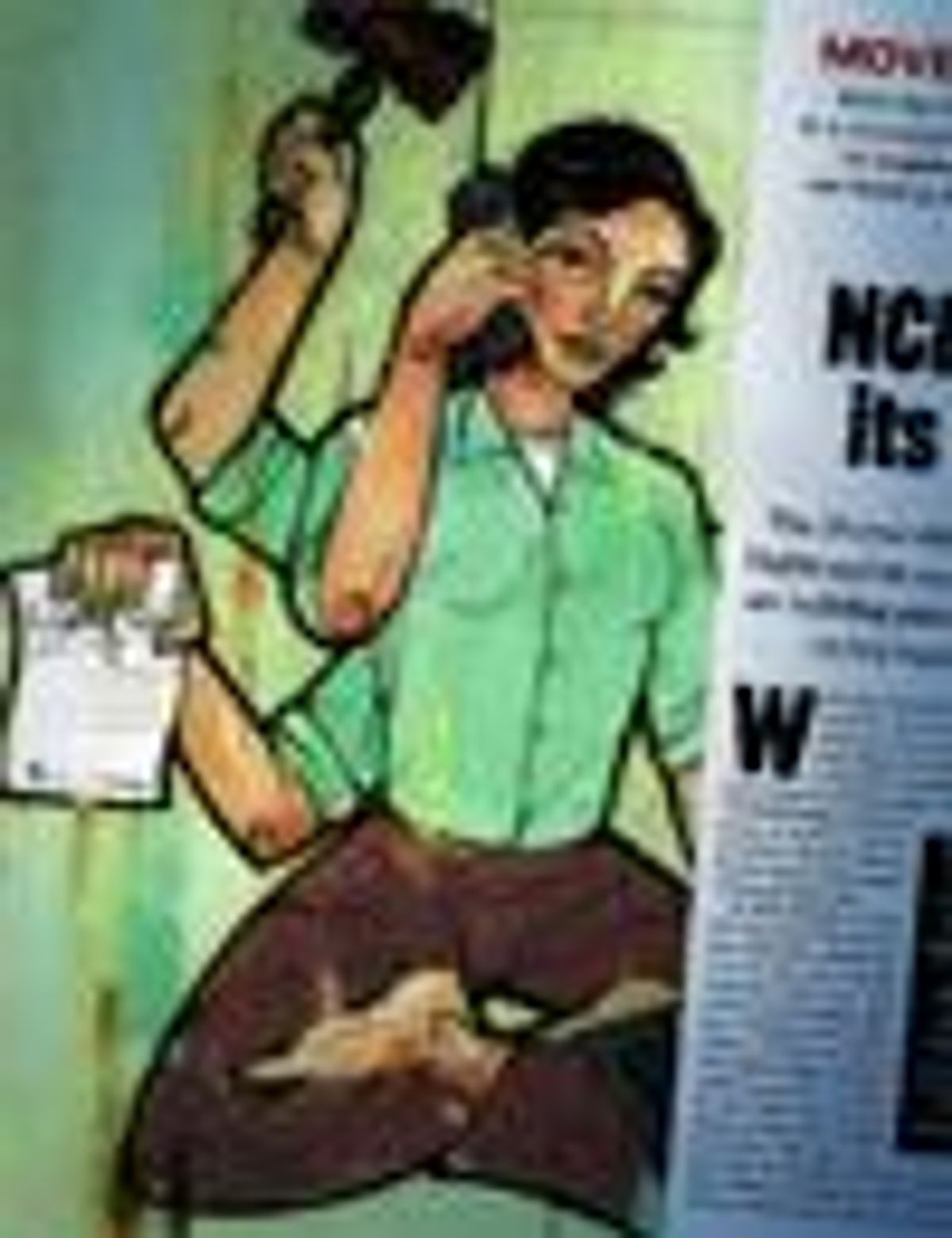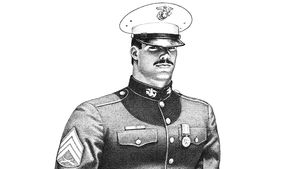When Kate Kendell
became executive director of the National Center for
Lesbian Rights in 1996, the nonprofit's dwindling
finances kept her awake at night. "We had a
$500,000 budget and not a penny in reserve," she
remembers. Kendell had to borrow money from a donor to help
pay basic bills.
In 2005, Kendell, 45, worries less about the
money than about the current battles for gay and
lesbian equality--and how her group is increasingly
playing a national role in that debate. (NCLR now has a $3.6
million budget and $1.7 million in reserve.) "I
can't be sure what next year is going to look
like in this movement," she says. "It's
that lack of certainty about the future that I think
is creating at worst a sense of fear--and in
some cases recrimination--in some quarters of the
movement, and at best a sense of uneasiness, and maybe
even a timidity."
The word timid does not describe NCLR's
current strategy.
After years of steadily building its
organization from tiny beginnings in San Francisco,
the group has become a key player in critical legal
challenges. Several facts exemplify its growth. NCLR has
added a communications director and an events
assistant. The San Francisco office has moved to a
larger space, the Florida office has relocated, and a
regional office has opened in Washington, D.C.
Perhaps NCLR's most important work is its
function as lead counsel in Woo v. Lockyer--the
California court case that is seeking to legalize same-sex
marriages. Such roles are typically handled by the larger
and better-financed Lambda Legal or the American Civil
Liberties Union. But NCLR has teamed up with
colleagues in the gay legal establishment, and in
March the complex proceedings led to a victory for same-sex
marriage advocates that is now under appeal.
The California case is not the next in line for
a high court decision on equal marriage rights. In
fact, Washington is ahead in that race, followed by
New Jersey, and maybe New York. But the Golden State
dominates the fight for marriage in a profound way. It is
the most populous state in the union and the fifth
largest economy in the world. In 1948, California
became the first state to rule that laws against
interracial marriage were unconstitutional, and if the
California supreme court upholds discrimination in
marriage laws this time around, it will be a shocking
setback regardless of what transpires elsewhere.
Equality Florida executive director Nadine
Smith, who has worked closely with the NCLR for the
last several years, says it would be "hard to find
somebody more well liked or more well respected as a thinker
and someone who gets things done" than Kendell.
At the wheel longer than most of her
counterparts, Kendell straddles the jobs of expanding
the NCLR and being a mother. On an average day, she
drops off one of her two younger children at school and gets
to work at 8:30. "Some days," she says,
"I feel like I am nothing more than a glorified
administrator, and other days I feel enormously contributing
and valuable."
Half of Kendell's evenings are taken up
with civic events or meetings, but other nights
Kendell is the one who does the shopping and makes
dinner for her family: partner of 12 years, Sandy Holmes;
son Julian, who is almost 9; daughter Ariana, 3; and
sometimes her 23-year-old daughter, Emily.
"I'm sort of a domestic goddess," she
says modestly, adding that Sandy's support
allows her to keep up the draining pace of travel that is
required for running a community nonprofit.
Kendell does not believe the gay rights movement
is in crisis but does believe it has entered a period
of uncertainty. "I think the greatest challenge
is not that we're not going to win, or not that
we're not engaged in a moral or proper
struggle," she says. "The greatest challenge
is that our uneasiness, our timidity, or our outright fear
will be permitted to play too great a role in our decision-making."
Launched as the Lesbian Rights Project in the
feminist heyday of 1977 by Equal Rights Advocates, the
project's early focus was lesbian families,
particularly those in which newly out mothers had to fight
for custody against ex-husbands seeking to undermine
their maternal rights.
Cofounder Nancy Davis recalls being
"hassled" for insisting on the L word in
the original Lesbian Rights Project name. "Some
people thought I should have called it something less
obvious, softer, not throw it in their faces,"
she said in a silver anniversary interview. "And
remember that in those days, the word
lesbian--people didn't use that word. I got
shit from women, from lesbians, that I was supposed to have
called it the 'Gay Women Something or
Another' because the word lesbian somehow was too loaded."
Perhaps the insistence on the L word indicates a
touch of the defiance that followed timorous bygone
days. But it should not suggest that the NCLR is less
than inclusive. Some of the group's earliest cases
involved the legal travails of gay men, who turned to
the NCLR at a time when few others in the young
movement cared about either gender's parental rights.
The group's commitment to gay fathers has never
flagged. As for trans rights, the NCLR founded the
Transgender Law Center in 2002, while legal director
Shannon Minter, a transgender man himself, is considered one
of the most respected transgender advocates in the country.
In 2004, NCLR also filed a marriage suit in
Florida and came to the aid of 64 couples in New
Mexico. It defended the California
domestic-partnership law against conservative legal groups
in a complicated piece of litigation, winning a
victory before a state superior court in April. It
drafted partnership legislation in New Mexico and
Florida. It held a national conference on family issues in
Seattle for private attorneys. It lobbied the American
Bar Association to issue a resolution against the
proposed federal constitutional amendment that would
outlaw same-sex marriage.
Meanwhile, NCLR litigated 19 partner and
parenting rights cases in nine states, and it created
the Coalition for Fair Adoption in Florida to regain
traction in the fight against adoption discrimination in the
Sunshine State after a disappointing court loss. It filed
lawsuits and pressed the case for safe schools, for
queer youths in general, for older lesbians and gay
men, and for victims of homophobia in sports. And it
continues to pursue gender identity rights in schools, in
the language of statutes, and elsewhere.
San Francisco author and activist Jewelle Gomez
and her partner of 12 years, Diane Sabin, are one of
the same-sex couples who married in that city.
They've gotten plenty of help from NCLR--on
such issues as legal questions about the case and
speaking to the media.
"These are
people who are working in the law field, so they're
really about dotting the i's and crossing those
t's and making things really, really function
within the framework of the legal community," Gomez
says. "We had e-mail advisories all along the
road letting us know where things stood, what we could expect."
When newspapers and television stations wanted
interviews with the couples, Gomez adds, NCLR helped
"demystify the process of what's going
to happen to get people in the position to tell their story.
Some of the stories were tearful. People were very,
very upset, very emotional. And to have them hear back
how they can be present and be emotional and still get
out what they wanted to say, that was lovely to see."


















































































